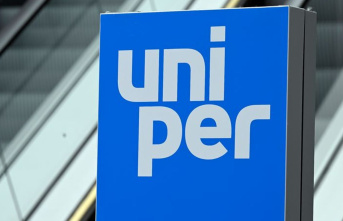For three months, buses and trains in Germany were one big scientific laboratory. Research question: How do consumers use local public transport when it is super cheap at 9 euros per month?
It was made possible by the 9-euro ticket, which expires in a few days and with which the federal government originally wanted to relieve the financial burden on citizens. It has long been a beacon of hope for a faster, sustainable turnaround in transport. Right?
Information was provided on Monday by a first overall balance sheet by the Association of German Transport Companies (VDV), which, together with Deutsche Bahn, is conducting the most extensive survey of just the use of the 9-euro ticket. Around 78,000 consumers were questioned as part of the study about the three-month period of use of the ticket - buyers and non-buyers.
According to the VDV, around 52 million tickets were sold nationwide over the entire period. "In addition, there are more than ten million subscribers who have automatically received the discounted ticket monthly over the campaign period," it said.
9-euro ticket increased demand in public transport
One in five buyers had never used public transport before. 27 percent were so-called "activated customers" who had previously used buses and trains less than once a month. The ticket has therefore significantly increased demand in public transport. "First of all, this is a success," said Bremen's Senator for Transport and Chairwoman of the Conference of Transport Ministers, Maike Schaefer (Greens), on Monday. "A cheap fare also plays a role when people decide: How do I want to get around?"
But the research also makes it clear that price is not the only factor. Because the special ticket was bought primarily in urban regions where public transport is generally well developed and buses and trains run at regular intervals. "In rural and structurally weaker areas, the proportion of 9-euro ticket owners is only half as high as in urban areas," said the VDV.
"A cheap ticket is no good if the offer is bad," said Baden-Württemberg's Transport Minister Winfried Hermann (Greens) when presenting the results. The federal states are therefore demanding a significant increase in the so-called regionalization funds from the federal government, with which the federal government co-finances public transport in the federal states and municipalities.
Different results in terms of C02 savings
There are also different results when it comes to modal shift. According to the VDV survey, around ten percent of users of the 9-euro ticket left their car at least once in favor of the bus or train. The association calculates that 1.8 million tons of CO2 have been saved in this way.
But other studies come to significantly lower values. The RWI-Leibnitz Institute for Economic Research in Essen, for example, has calculated CO2 savings that are at least three times lower for the same period.
The surveys by the Essen researchers also show that not only the use of public transport increased during the 9-euro ticket period, but also the use of cars in general. Even buyers of the 9-euro ticket drove an average of 18 kilometers more per week in June than in a survey conducted before the introduction of the 9-euro ticket in April. According to RWI study author Mark Andor, this can have several reasons - such as the reduction in fuel prices or a generally higher mobility behavior after the restrictions in the Corona crisis.
Nevertheless, the federal states are keeping the pressure on the federal government to present a proposal for a connection solution for the 9-euro ticket as quickly as possible. But it must also be clear: "If the system financing is not included in a connection offer, then we have traded with lemons," said Transport Minister Hermann. "That was badly divided with the 9-euro ticket."







